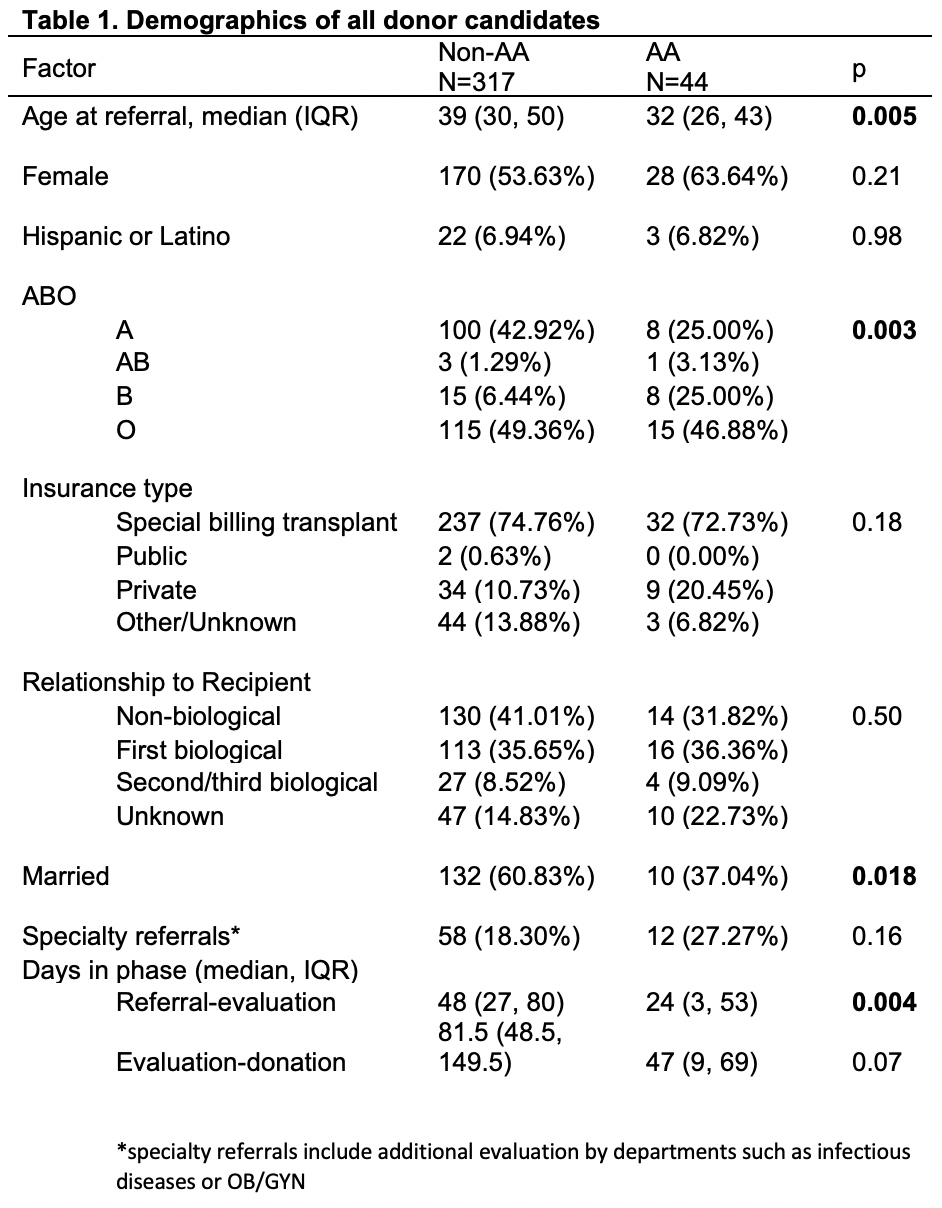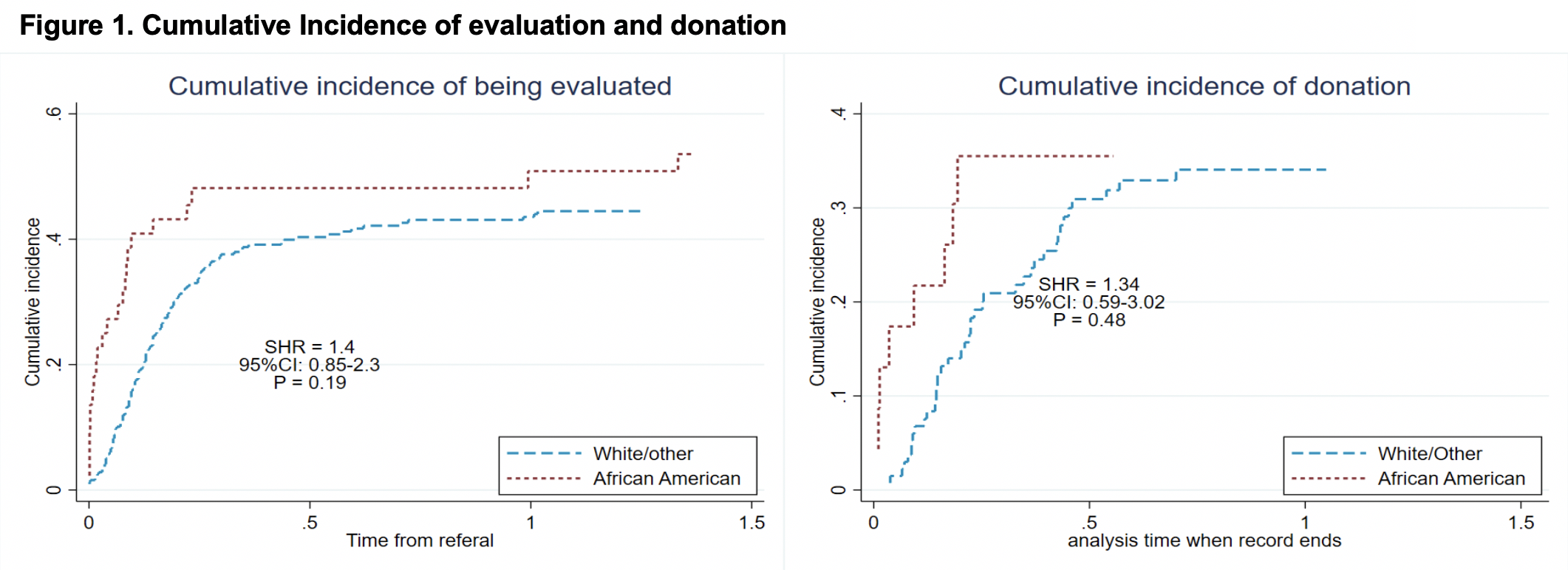A Single-Center Characterization of the Living Liver Donor Evaluation Process
Department of Surgery, Johns Hopkins University, Baltimore, MD
Meeting: 2020 American Transplant Congress
Abstract number: 476
Keywords: Liver, Living donor, Screening
Session Information
Session Name: Liver: Living Donors and Partial Grafts II
Session Type: Oral Abstract Session
Date: Saturday, May 30, 2020
Session Time: 3:15pm-4:45pm
 Presentation Time: 4:27pm-4:39pm
Presentation Time: 4:27pm-4:39pm
Location: Virtual
*Purpose: We have previously characterized the living kidney donor evaluation and found that African American (AA) donors were less likely to progress through the process and more likely to be denied due to comorbidities. We sought to characterize the liver donor (LD) evaluation process at our center to determine any disparities in time through referral, evaluation, and donation between AA and non-AA candidates.
*Methods: A retrospective chart review was performed of 487 donor candidates at Johns Hopkins Hospital who inquired to be a live donor between 1/2015 and 11/2019. The referral-to-evaluation phase is defined as the time from when the candidate first contacted the center, and the evaluation-to-donation phase includes all medical screening and committee clearance for donation.
*Results: Of 487 donor candidates, 290 (56%) were ineligible for evaluation. Of the 164 patients evaluated after referral, a total of 49 (10%) candidates were transplanted. The primary reasons for non-donation prior to the evaluation phase were loss of contact with the donor candidate (28%) and the recipient received a deceased donor transplant (28%). The primary reasons for non-donation in the evaluation phase were medical concerns with the donor (26%), such as BMI and remnant size, and the recipient receiving a deceased donor transplant (20%) (Table 1). The median time from referral to evaluation was 45.5 days (24 days for AA and 48 days for non-AA), while the median time from evaluation to transplantation was 71 days (47 days for AA and 81.5 days for non-AA).
*Conclusions: Contrary to known patterns in live organ donation, AA LD candidates were more likely to progress through each phase of the evaluation process than non-AA donor candidates, and progress faster. The difference was unrelated to healthcare access and donor-recipient relationships.
To cite this abstract in AMA style:
Herbst LR, Love AD, Krach M, Yu Y, Kurman L, Gurakar A, Hammami M, Cameron AM, Wang JGaronzik. A Single-Center Characterization of the Living Liver Donor Evaluation Process [abstract]. Am J Transplant. 2020; 20 (suppl 3). https://atcmeetingabstracts.com/abstract/a-single-center-characterization-of-the-living-liver-donor-evaluation-process/. Accessed July 18, 2025.« Back to 2020 American Transplant Congress



